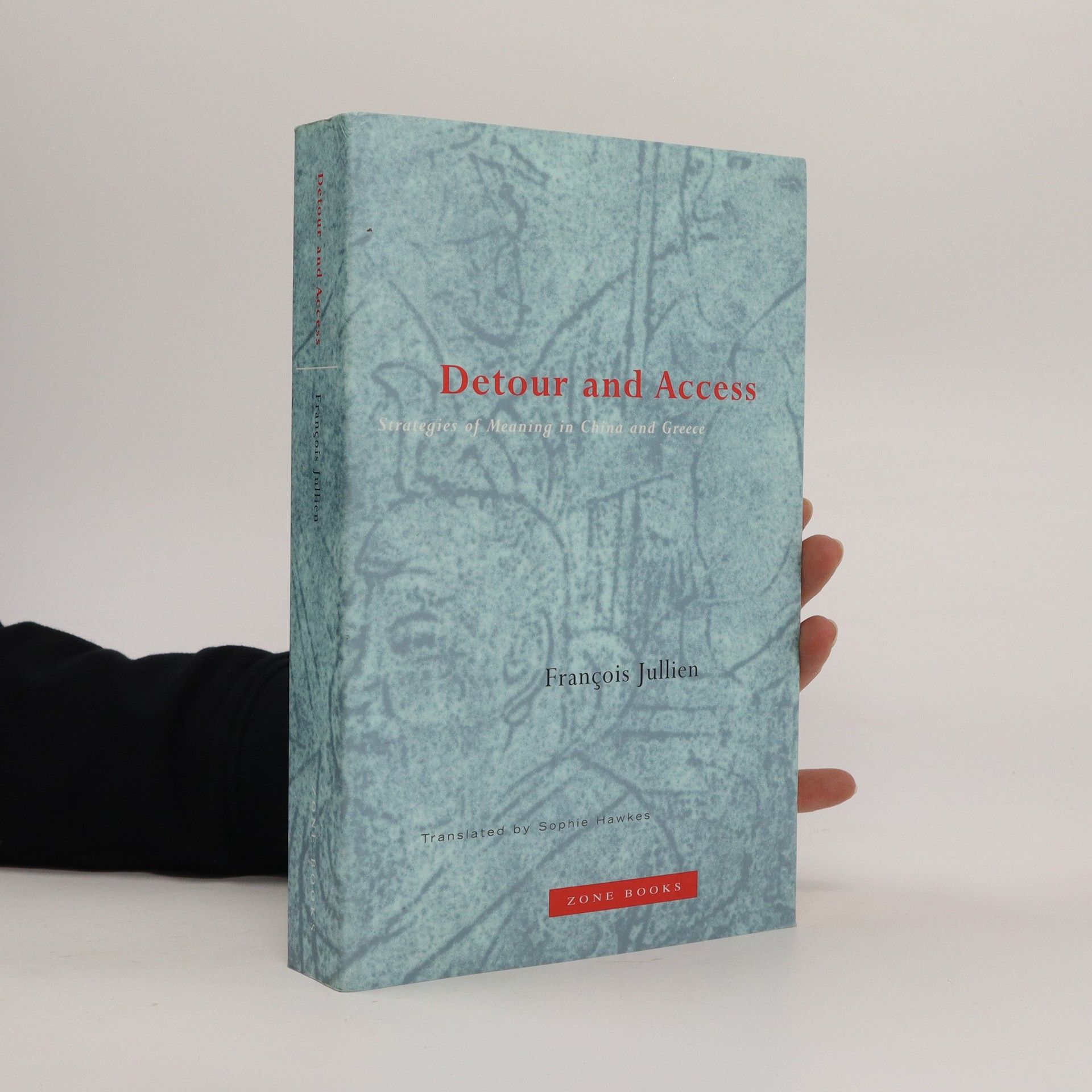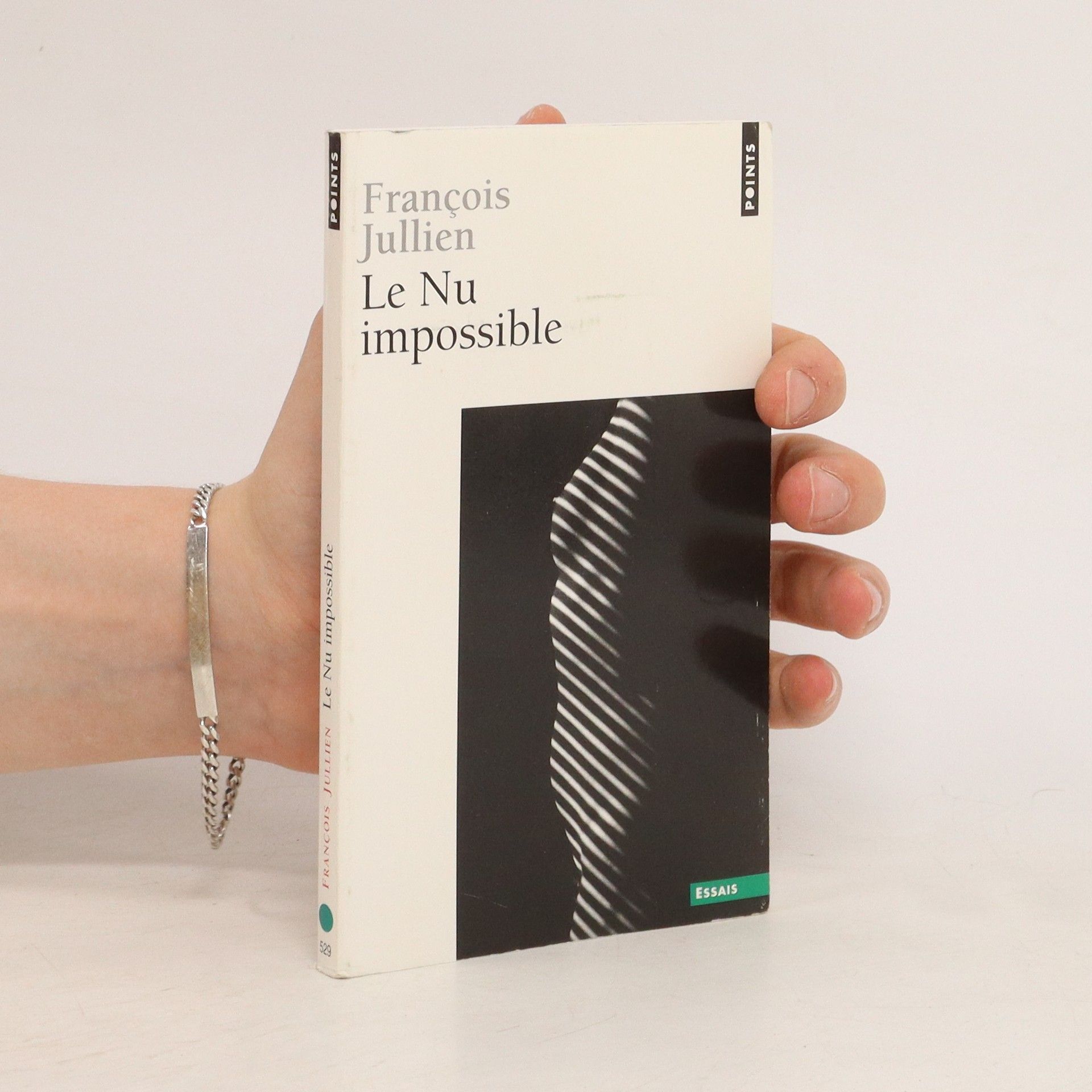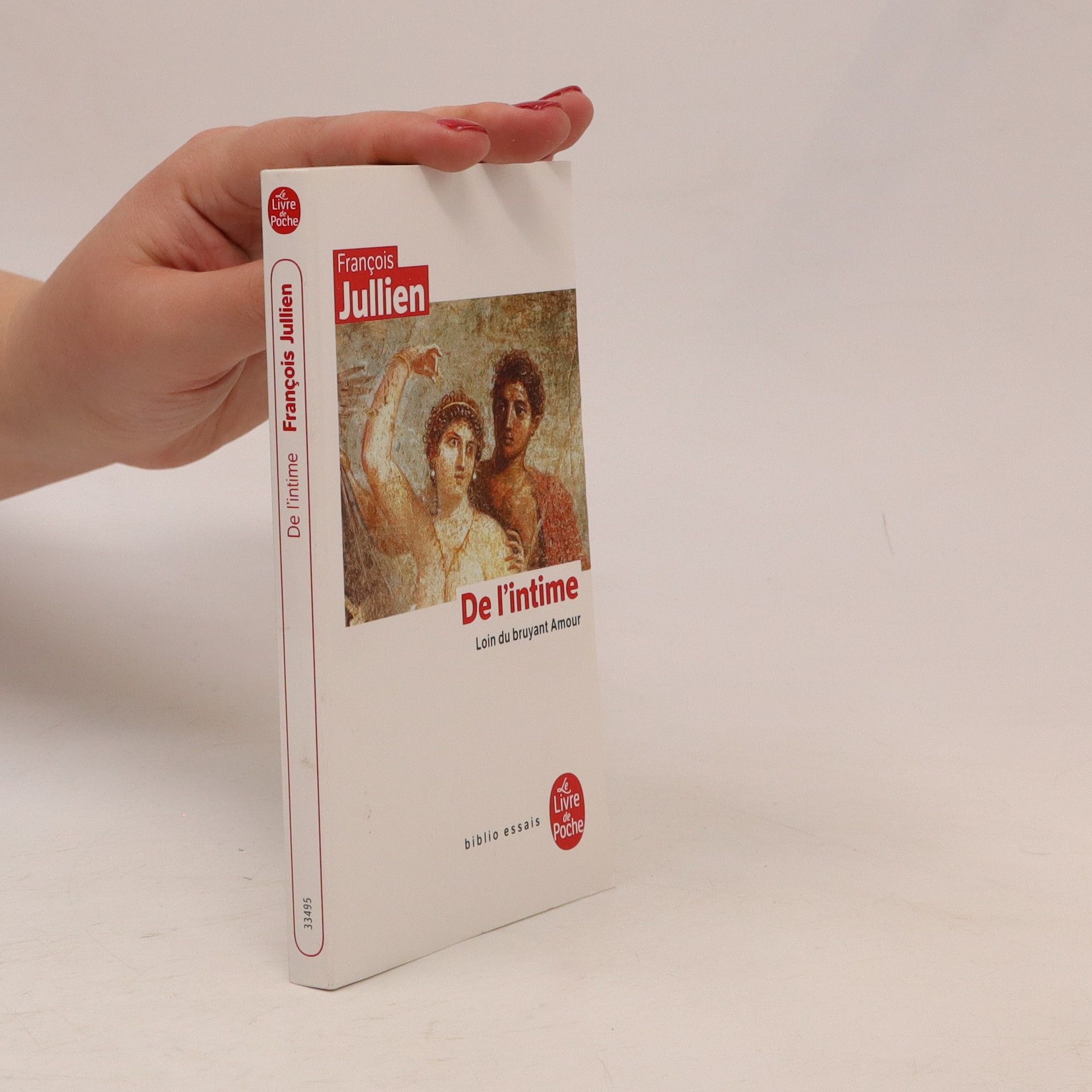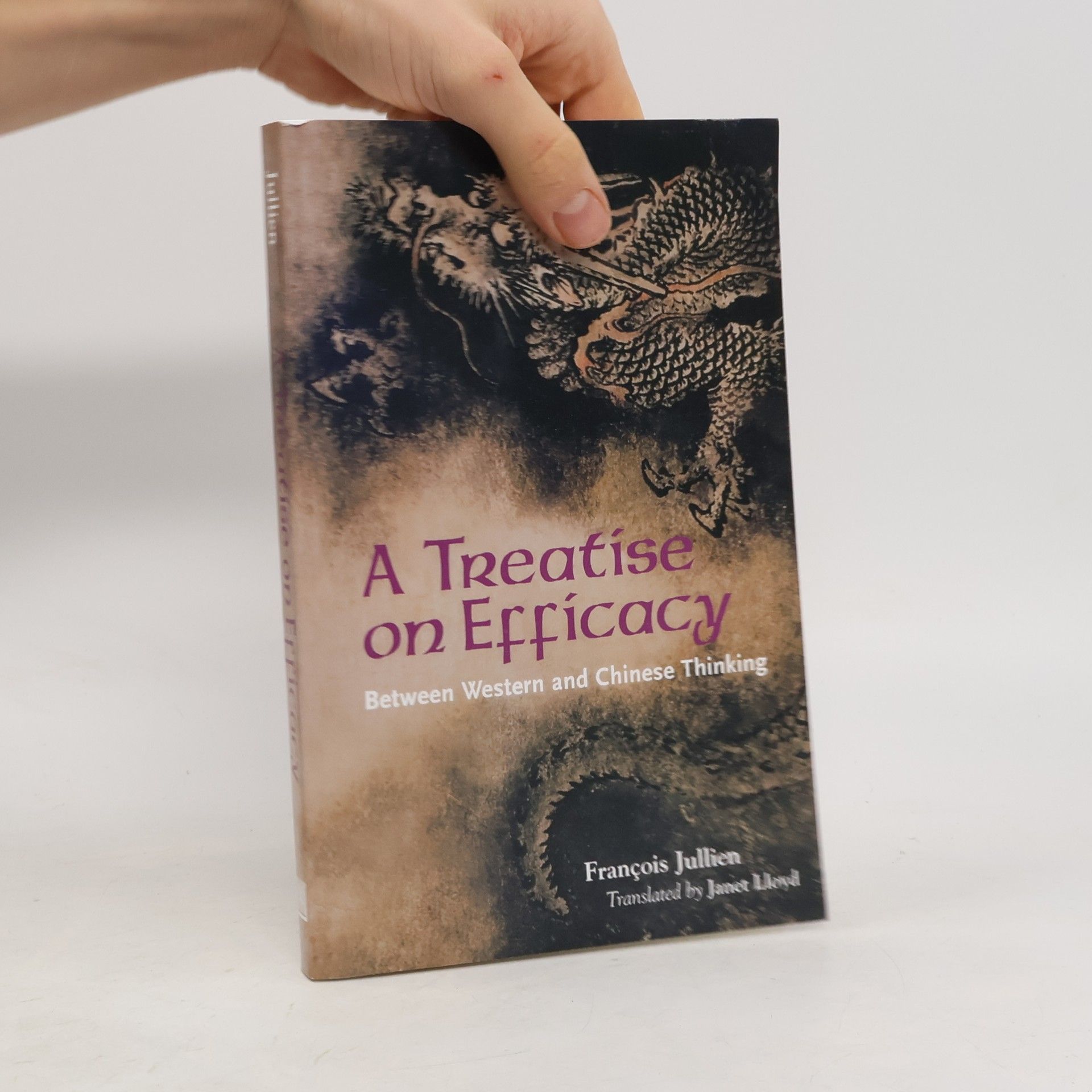A l'amour et au " Je t'aime " - qui réduit l'autre à n'être qu'un objet et fait de la passion un événement qui s'usera -, François Jullien entend substituer, dans ce livre, l'intime. Qu'est-ce à dire? Que l'intime, précisément, abolit la frontière entre l'autre et soi. Qu'il fait basculer un dehors indifférent dans un dedans partagé. Qu'il vit des " riens " du quotidien, en y découvrant les vertus de l'être auprès. Telle est sa façon - via saint Augustin, Rousseau et Stendhal - de se débarrasser de l'éternel du " cour " humain. Comment l'Europe s'y est-elle prise pour transporter cet intime de Dieu à l'humain ? Et peut-on - doit-on - fonder une morale sur ce sol ?
François Jullien Livres






Tout désigne le Nu comme un phénomène qui a si bien collé à la culture européenne que nous n'en sommes jamais sortis. Tant il relie l'Occident d'un bord à l'autre, d'une époque à l'autre, et a servi continûment de base dans la formation des Beaux-Arts. L'Eglise a pu rhabiller le sexe, mais elle a gardé le nu. En revanche, s'il est un espace culturel où le nu est resté complètement ignoré, c'est bien en Chine. Donnée d'autant plus surprenante que la tradition artistique chinoise a largement développé la peinture et la sculpture des personnages. Une absence aussi radicale, et qui ne souffre pas d'exception, renvoie à une impossibilité. Nous voilà donc conduits à nous interroger sur la condition de possibilité du nu : à quoi, d'un point de vue théorique, a-t-il dû de s'interposer entre la chair et la nudité, le désir et la honte ? Rouvrant ainsi un accès sensible à l'ontologie, François Jullien en fait le révélateur de notre quête de l'en-soi et de la présence, en même temps qu'il met au jour un nouvel objet, d'autant plus intéressant à penser qu'il est identifié par son absence : le " Nu impossible ".
Éloge de la fadeur
à partir de la pensée et de l'esthétique de la Chine
On croira d'abord au paradoxe : faire l'éloge de la fadeur, priser l'insipidité et non point la saveur, c'est aller à l'encontre de notre jugement le plus immédiat. Prendre plaisir à malmener le sens commun. Or, dans la culture chinoise, la fadeur est reconnue comme qualité. Plus encore : comme la qualité, celle du " centre ", de la " base ". Le motif est important déjà dans la pensée de l'Antiquité, qu'il s'agisse de dresser le portrait du Sage ou d'évoquer la Voie. De là, il a fécondé la tradition esthétique des Chinois : non seulement parce que les arts qui se développent en Chine bénéficient d'une telle intuition, mais aussi parce qu'ils peuvent rendre plus sensible cette insipidité fondamentale - ils ont donc mission de la révéler : à travers le son, le poème, la peinture, la fadeur devient expérience. François JULLIEN Pour percer les arcanes de la pensée chinoise. Poésie, peinture, musique, les arts dans leur ensemble, mais aussi plus largement la culture et la philosophie sont ici revisités à partir de la notion de fadeur. Ou comment, vers l'Orient, les valeurs se sont inversées, jusqu'à définir une autre économie de l'esthétique comme de la réflexion. Dans une langue claire et agréable, François Jullien brosse le tableau de cet " autre " esprit.
Detour and Access
- 424pages
- 15 heures de lecture
There Is No Such Thing as Cultural Identity
- 100pages
- 4 heures de lecture
As people throughout the world react to globalization and revert to nationalism, they are proclaiming distinct cultural identities for themselves. Cultural identity seems to offer a defensive wall against the homogenizing effects of globalization and a framework for nurturing and protecting cultural differences. In this short and provocative book, François Jullien argues that this emphasis on cultural identity is a mistake. Cultures exist in relation to one another and they are constantly mutating and transforming themselves. There is no cultural identity, there are only what Jullien calls ‘resources’. Resources are created in a certain space, they are available to all and belong to no one. They are not exclusive, like the values to which we proclaim loyalty; instead, we deploy them or not, activate them or let them fall by the wayside, and each of us as individuals is responsible for these choices. This conceptual shift requires us to redefine three key terms – the universal, the uniform and the common. Equipped with these concepts, we can rethink the dialogue between cultures in a way that avoids what Jullien sees as the false debate about identity and difference. This powerful critique of the modern shibboleth of cultural identity will appeal to anyone interested in the great social and political questions of our time.
From Being to Living: A Euro-Chinese Lexicon of Thought
- 224pages
- 8 heures de lecture
Exploring the contrasts between Western and Chinese philosophies, this new English translation of François Jullien's work presents a profound analysis that highlights the unique aspects of both traditions. Jullien delves into the implications of these differences for understanding concepts such as knowledge, ethics, and existence. His insights encourage readers to reflect on how cultural perspectives shape thought processes and worldviews, making this a significant contribution to comparative philosophy.
This volume asks poignant questions about what it means to be alive and inhabit the present. Living holds us between two places. It expresses what is most elementary--to be alive--and the absoluteness of our aspiration--finally living! But could we desire anything other than to live? In The Philosophy of Living, François Jullien meditates on Far Eastern thought and philosophy to analyze concepts that can be folded into a complete philosophy of living, including the idea of the moment, the ambiguity of the in-between, and what he calls the "transparency of morning." Jullien here develops a strategy of living that goes beyond morality and dwells in the space between health and spirituality.
Resources of Christianity
- 128pages
- 5 heures de lecture
An exploration of what it means when we say something is beautiful. Bringing together ideas of beauty from both Eastern and Western philosophy, François Jullien challenges the assumptions underlying our commonly agreed-upon definition of what is beautiful and offers a new way of beholding art. Jullien argues that the Western concept of beauty was established by Greek philosophy and became consequently embedded within the very structure of European languages. And due to its relationship to language, this concept has determined ways of thinking about beauty that often go unnoticed or unchecked in discussions of Western aesthetics. Moreover, through globalization, Western ideals of beauty have even spread to cultures whose ancient traditions are based upon radically different aesthetic foundations; yet, these cultures have adopted such views without question and without recognizing the cultural assumptions they contain. Looking specifically at how Chinese texts have been translated into Western languages, Jullien reveals how the traditional Chinese refusal to isolate or abstract beauty is obscured in translation in order to make the works more understandable to Western readers. Creating an engaging dialogue between Chinese and Western ideas, Jullien reassesses the essence of beauty.
In this highly insightful analysis of Western and Chinese concepts of efficacy, Francois Jullien subtly delves into the metaphysical preconceptions of the two civilizations to account for diverging patterns of action in warfare, politics, and diplomacy. He shows how Western and Chinese strategies work in several domains (the battlefield, for example) and analyzes two resulting acts of war. The Chinese strategist manipulates his own troops and the enemy to win a battle without waging war and to bring about victory effortlessly. Efficacity in China is thus conceived of in terms of transformation (as opposed to action) and manipulation, making it closer to what is understood as efficacy in the West.Jullien's brilliant interpretations of an array of recondite texts are key to understanding our own conceptions of action, time, and reality in this foray into the world of Chinese thought. In its clear and penetrating characterization of two contrasting views of reality from a heretofore unexplored perspective, A Treatise on Efficacy will be of central importance in the intellectual debate between East and West.
